#heiji otaku commentary
Explore tagged Tumblr posts
Photo
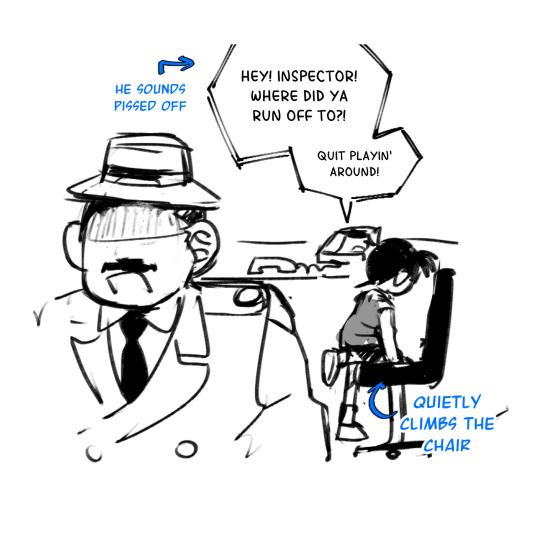
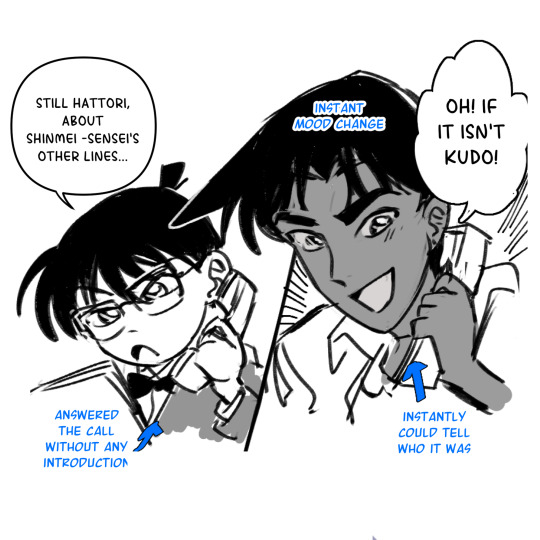

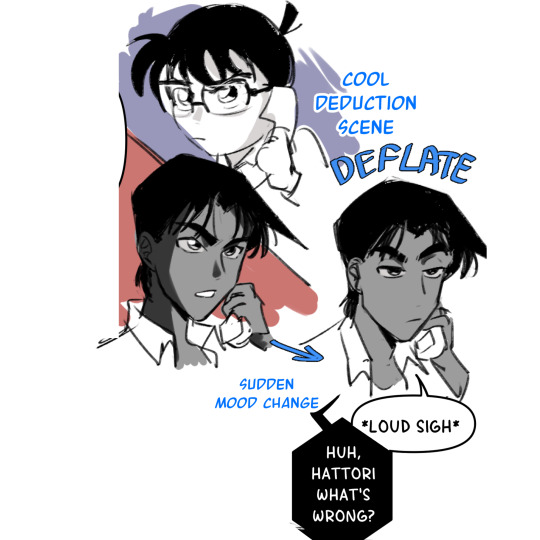

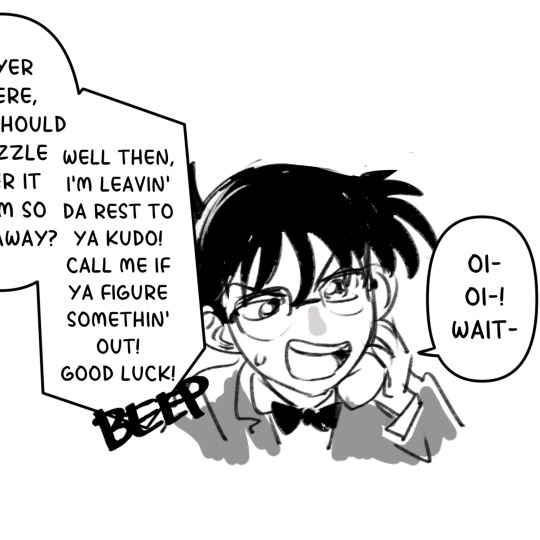

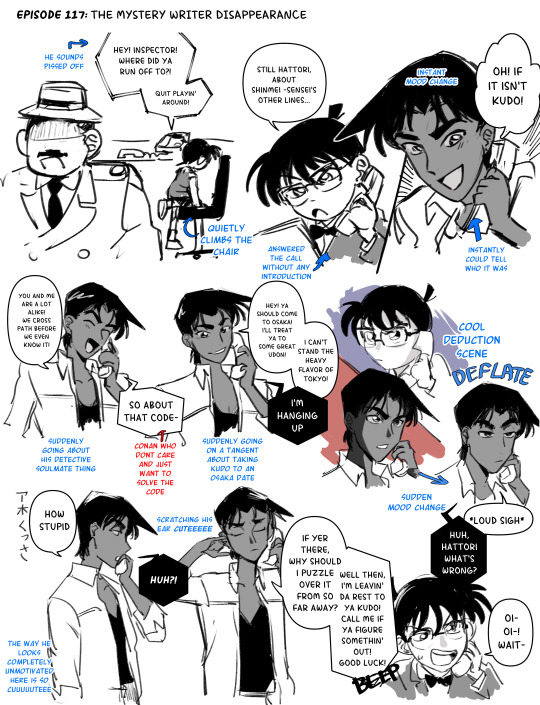
episode 117 commentary from a heiji otaku
#hattori heiji#edogawa conan#detective conan#dcmk fanart#iim still questioning why he was wearing his jacket over his shitty indoor tops when he is infact indoor#dcmk#my art#edit: finally got around to fixing the order lol#heiji otaku commentary
769 notes
·
View notes
Text
Milky Holmes' Rise to Fall, or How to Find Hope in Troubled Times
Milky Holmes reminds me of Žižek. And while it might seem quite nonsensical to tie this sentence together, it’s also something that gives us light about the times we’re facing.
Milky GODS
Always controversial, the Slovenian philosopher Slavoj Žižek does have some interesting things to say. But even though he’s mostly known for his approach of leftist politics, the analysis of his that has stuck with me the most doesn’t relate to politics, or at least not directly. It’s his commentary about the animated film Kung Fu Panda, produced by Dreamworks. He has referred to the film a couple of times while highlighting something that has now become sort of a recurrent topic of his mythos. The idea of faith. This idea, also explained by him in the form of an anecdote about a scientist (Niels Bohr) who didn’t believe in charms, yet used to put one in his house just because he was told “it would work, even if he didn’t believe in it”, is essential to Kung Fu Panda and to Dreamworks as a whole (even if Žižek doesn’t directly acknowledge it). While the film works as a parody of Chinese martial arts films, and spends part of its runtime satirizing Chinese philosophy, in the end these principles are embraced, as Po’s wu wei defeats Tai Lung’s ambition (and we can say the same about the way Shrek and Megamind relate to fairy tales and superhero fantasy, just to cite other examples).
But what does any of this have to do with Milky Holmes? What is this Milky Holmes, even? And as many of you might not be familiar with this long running multimedia franchise, it wouldn’t do harm to recapitulate its history. To understand Milky Holmes, we must first understand its seeds, which are in Broccoli and Bushiroad, two Japanese companies which were both founded by a single man, named Takaaki Kidani. Kidani started Broccoli in the late ‘90s, which first worked as a doujin management company for events, then expanding itself through Gamers, a goods store directed towards the otaku market. Gamers was immortalized and popularized through the Di Gi Charat franchise, produced by Broccoli and extremely massive through the late 90s and early 2000s. Spanning various anime adaptations, numerous manga, and lots of merchandise, the now classic characters were a boom within this same otaku market, and part of this success even crossed overseas, as you might see if you venture into old anime archives.
This really handsome dude is Takaaki Kidani
Now the success of Di Gi Charat probably wasn’t just because of the mascot made designs, though of course that had a part in its popularity. Aside from the already obvious fact, the Di Gi Charat franchise, at least in its first animated adaptation, had a pretty good sense of humor and irony. In a way, it was mocking the very own otaku it was targeted towards, and while it sure wasn’t the first to do so, this style of self-deprecating and sometimes grotesque or even infantile humor the series subjected its viewers to was something special. And while Di Gi Charat had quite the acid tone, it wasn’t without its share of tame and even heartwarming moments. It was moe, marketable of course, but there was something else as well. This series had a heart.
The heart of the show has a name and it’s Puchiko
It’s this spirit that Milky Holmes, more than 10 years after the creation of Di Gi Charat, held as its foundation as one of the star projects of the then recently started Bushiroad, founded after Kidani left Broccoli. Learning from his success in Broccoli’s projects such as the aforementioned Di Gi Charat, and also the media franchise Galaxy Angel, Milky Holmes was thought of as a multimedia project from the start. In the case of Milky Holmes, radio dramas, a manga, a PSP video game, an anime adaptation, and, perhaps most importantly, a seiyuu/idol unit were launched. I say most importantly because it was the disbandment of this unit that signaled the end of the franchise as a whole. In January’s 28th of 2019, Milky Holmes gave their final live performance at the Budokan, in fact ending the decade old franchise.
The end of Milky Holmes
On the anime side of things, the last installment was Psycho no Aisatsu, a crossover special episode featuring the main character of the Cardfight!! Vanguard franchise, a trading card game series for kids that was also created by Bushiroad. It was the symbolic pass on the torch to a younger, still profitable franchise in Bushi, that hopefully might keep the spirit of the Milkies alive. But we must not be sad for what has ended, as this franchise will always stay there to be revisited, even for people who never got to experience it when it was still active.
And it’s because of this that I have not forgotten about Milky Holmes, even though it has been years since it ended. I feel especially partial to the anime, particularly its first two seasons, and the 2016 movie: Milky Holmes' Counterattack (and what a movie is that one). One common thing about these three is that all of them feature Makoto Moriwaki as a director. And I feel she’s the one who better captures the spirit I mentioned above when talking about Di Gi Charat. It isn’t the only way to understand the series: there’s the video games, that might be seen as the source material; the Alternative OVAs, that are a closer adaptation of the games; and the two other anime seasons, which are completely different to anything else (and most people don’t seem to like); but Morikawi’s interpretation is the most interesting one, at least to me.
Now, you might be tired of so much anticipation and context, but it’s important to understand the background of this director to realize what she brought to the franchise (because yes, it’s a she) to, as I believe, perfect it. Makoto Moriwaki has mostly made a career out of directing children’s anime, more specifically anime for girls. Series such as the Sanrio based My Melody and PriPara have been directed by her, along with some Jewelpet seasons and even some Doraemon episodes. But a sort of black sheep among all that family friendly content is the raunchy adult comedy Ebichu, which, in spite of its cutesy visuals reminiscent of Hamtaro, is a series mostly targeted towards older women, full of jokes about adult life that, of course, involve a lot of sex.
it means a dirty word, if you didn’t realize
The Milky Holmes directed by Moriwaki is a middle ground between those two poles. On one hand, the cynicism, irony, and hidden sexual references in an outwardly kids friendly series, and on the other, the fantasy and the hopeful nature of magical girls and idol anime. And this dichotomy is also highlighted when we understand the target of this series. Despite its looks, Milky Holmes is not directed towards children. It’s not a kids show, but rather, a completely otaku business. It was broadcasted as shinya anime at 11 pm, it has its share of adult humor, and of course, the moe characters are exactly that, there’s no ambiguity there. It’s made to sell merchandise, discs and BDs to fat weirdos. But it’s quite interesting how the show treats its own audience, because if we’re to take Milky Holmes as an otaku product, it isn’t simply cynical.
Yes, that there is a ****plug
We have talked about Milky Holmes as a product and as a media franchise, but let’s review the series itself. To those who don’t know, Milky Holmes is set in a fantastical time and space called the Age of Great Detectives. In this world, Great Detectives and their eternal rivals, Gentlemen Thieves, are in constant struggle. They’re aided by their Toys, special powers whose name might be an irony on Bushiroad’s own status as a company.
A fascinating part of the Milky Holmes franchise for any crime or detective fiction freak is that most of the character names are taken from legendary detectives and criminals. There’s the 4 Milky Holmes members, which are respectively: Sherlock “Sheryl” Shellingford, the always energetic and optimistic leader (named after the most famous detective of all); Nero Yurizaki, a greedy, egotistical bokukko (named after the gluttonous Nero Wolfe); Hercule “Elly” Burton, a shy girl who has the most awareness inside the Milkies (named after Agatha Christie’s Hercule Poirot); and Cordelia Glauca, the shoujo-esque dramatic and delusional member of the crew (named after Cordelia Gray, the only character of the four that is originally female).
From left to right, unlike your Japanese mangos
They battle constantly against the Gentlemen Thief Empire, led by the intense and prideful Arsene (after Arsène Lupin, the French gentleman thief also recalled by the Monkey Punch character); and completed with Twenty, a narcissistic nudist that weaponizes his erect nipples (based on Menso Nijuu, a villain from the Ranpo Edogawa canon); Stone River, a prude warrior with a samurai pride (based on Goemon Ishikawa, the outlaw hero from Japanese folklore, also referenced by Lupin III); and Rat, who’s victim of everyone’s forgetfulness (based on Kozo Nezumi, a folk hero from the Edo period).
Twenty, Arsene, Stone River, and Rat
There’s also a third party in discord, that can either work as ally or enemy depending on circumstance (much like in your typical detective story) which is of course formed by the cops. The G4 is the “elite” patrol of law enforcement whose effectiveness also depends on plot convenience, and their leader (and child genius with infinite amounts of IQ) Kokoro-chan’s (named after Kogoro Akechi, the famous Ranpo Edogawa detective) mood. The other members are Tsugiko Zenigata (after Heiji Zenigata, a Japanese legend), a somewhat tomboyish girl voiced by Miyuki Sawashiro; Hirano Hasegawa (after Heizo Hasegawa, from the Onihei Hankacho novels), a traditional Japanese girl who is a master of combat; and Saku Toyama (after Kagemoto Toyama, a historic character made legend), the technological expert of the gang.
She just keeps it going up
Don’t call her Kokoro-chan, she’ll get angry
However, the main source of conflict (and comedy) in the series is that, despite being quite powerful and capable as detectives with the aid of their toys, the Milkies are pretty much nothing without them. Dame dame (useless), is something they’ll often have to hear, as they constantly struggle with the loss of their toys at the start of almost every new installment (save for Futari wa and TD, in which they weren’t the main characters because of this exact reason). Nonetheless, in spite of how hard they might fall, how much they can be humiliated and degraded (and they sure will), and basically turn into dumb slapstick cartoons, they will always stand up again, never losing hope even when taking a detour, or when they’re becoming farmers instead.
Milky farmers
In this acknowledgment of the cyclical and absurd nature of their misfortunes, made explicit in the movie by the (unintentional) use of words by Sheryl: “it’s rise to fall”, the philosophical implications of the series are unlocked, at least from the Moriwaki iteration of it. It’s an absurd reality, in which no matter how high one can be, one can always fall to the lowest of the low. Yet, when you have fallen, there’s nothing else you can do but go up, try and hope for the best, never giving in to life no matter how discouraging or absurd it might become.
It’s existential philosophy, right inside a moe anime, and one can’t be anything but thankful of someone who is giving such messages inside a work that could conform to just offering a product for profit. Instead, what Milky Holmes is doing is to tell its audience that no matter how hard their lives might get, no matter how repeatedly they might hear that they’re useless, that they’re dumb or hopeless, they must never give up. It’s quite beautiful, even more so when you’re aware of the darker sides of the otaku and the stigma and social alienation a lot of these people face in their country. And so, Milky Holmes might be a ray of light amidst a rabbit hole of isolation, which can be relatable to most of us as we face the current pandemic. A sign that even if we can’t see it, there’s hope at the end of the tunnel.
Yes, she’s saying that when they’re in prison
Closing on a hopeful note, I’ll let you in on a cool fact. Do you know who directed the Milky Holmes movie alongside Moriwaki? I will give you some lines to guess, if you think you’re smart detectives.
…
…
…
…
…
…
…
…
Yes! It was Hiroaki Sakurai, who, coincidentally (or not), was the series director for most of the Di Gi Charat anime versions since its first installment in 1999. It’s really cool how everything circles back to a now almost prehistoric franchise, but it also circles back in a less symbolic way. 2021 seems to be a new year for Di Gi Charat, as the franchise is getting a revival as “Di Gi Charat Reiwa”, a new generation of the series which contemplates lots of merchandise and, most importantly, a new anime series, helmed by no other than the same Hiroaki Sakurai. Here’s hoping for a revitalization of this lively spirit, a hopeful affirmation of the disgusting manchildren we all have inside.
Promotional image for this era’s own Charat
Salvador González Turrientes
Links and additional sources of information:
Žižek on Kung Fu Panda
The Milky Holmes article from the English Wikipedia
Wikipedia list of the Milky Holmes characters (in English)
Takaaki Kidani's article (in English)
Takaaki Kidani’s article (in Japanese)
Di Gi Charat's Wikipedia (in English)
Hiroaki Sakurai's (in English)
Makoto Moriwaki's article (in English as well)
The news of the Di Gi Charat Reiwa anime (from ANN)
1 note
·
View note
Photo

a heiji otaku spazzing out about halloween case party
#hattori heiji#dcmk fanart#detective conan#my art#vermouth who got her hands on the school festival pictures.... may i please got some copies#okay but this episode is so crazy i cant believe gosho gave heiji a chance to do a proper shinichi disguise#dcmk#heiji otaku commentary
587 notes
·
View notes
Text

hattori heiji fashion!! part 1
[part 2]
#my art#hattori heiji#dcmk fanart#detective conan#heiji hattori#another addition to the cringe otaku commentary content#my wip is already up to the 3 Ks case actually wish my luck so i can turn this into a dedicated fashion compilation series ToT#heiji outfit
560 notes
·
View notes